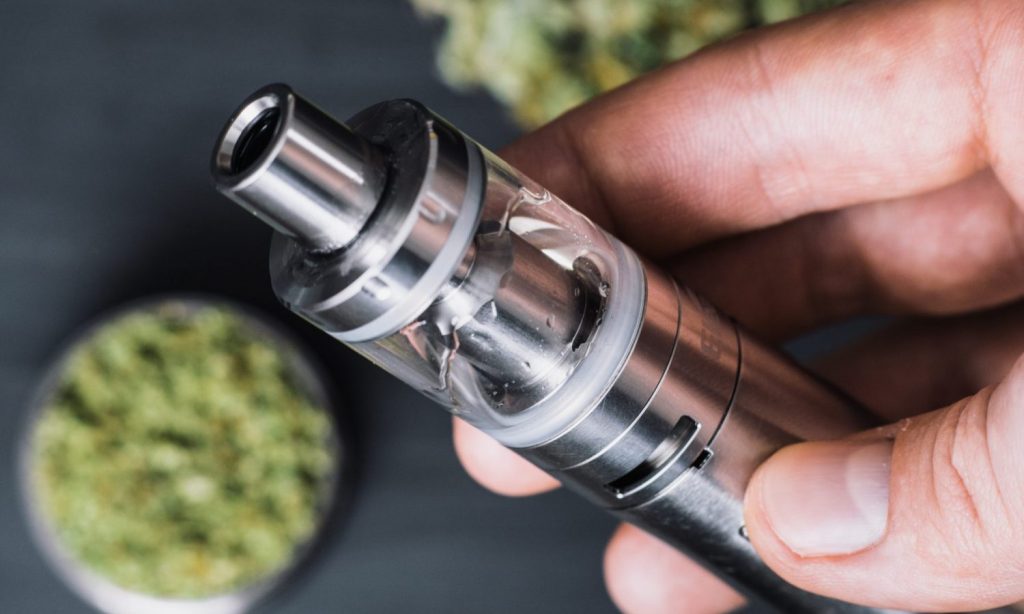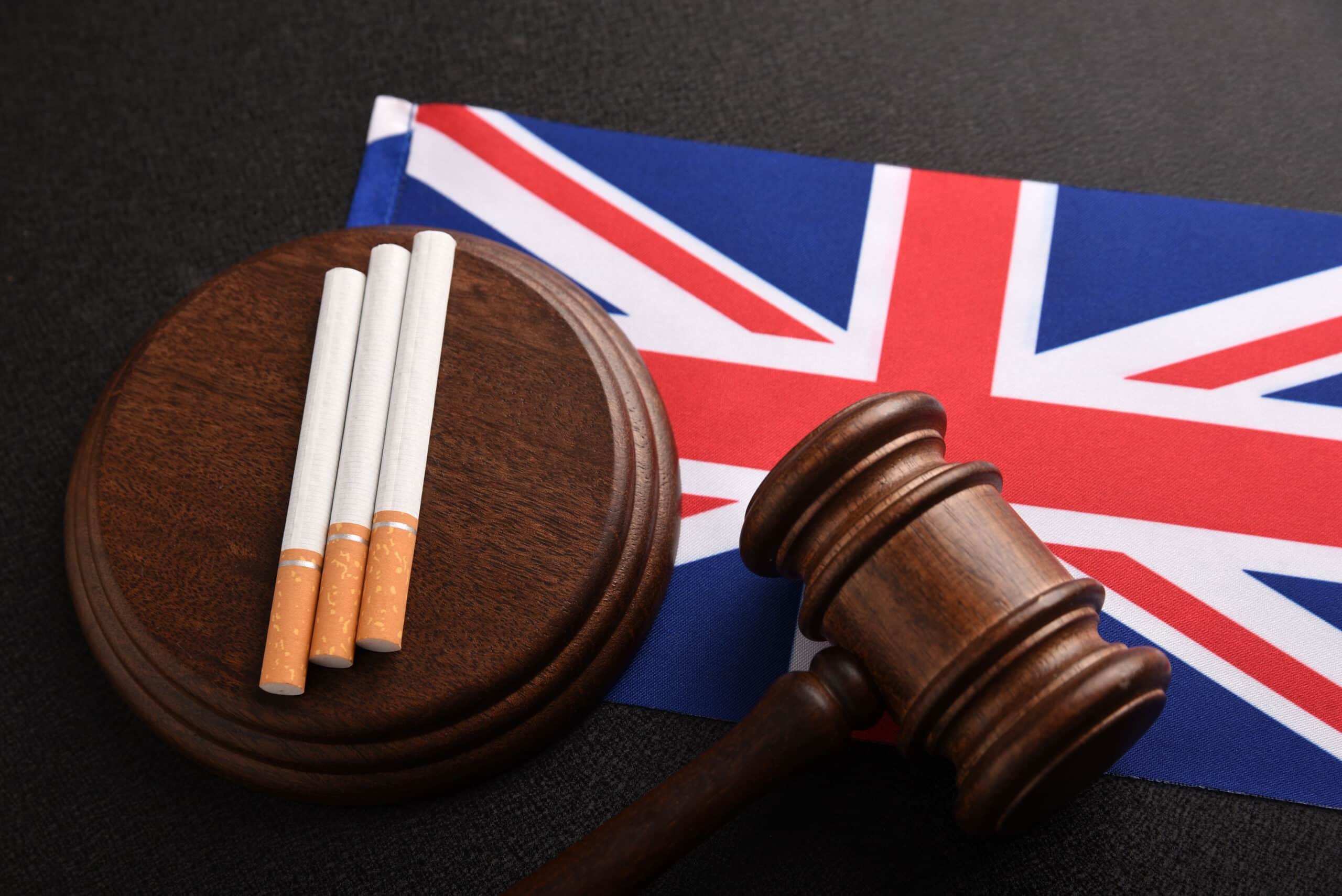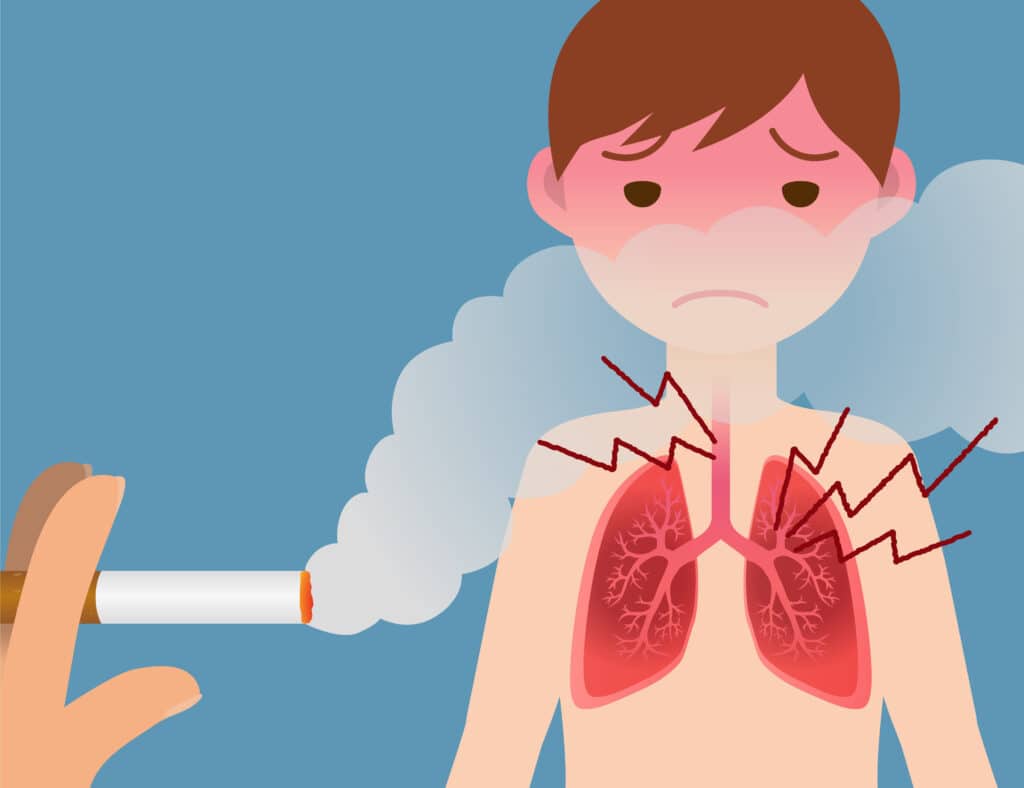cigarettes
What is Stoptober? – Cannadelics
Published
2 years agoon
By
admin
Stoptober. This phenomenon is more than just the combination of the words ‘stop’ and ‘October’. Every year, countless individuals around the world make the decision to quit smoking, recognising the numerous health benefits and improved quality of life that come with breaking the habit.
In the United Kingdom, an initiative known as Stoptober, created by the National Health Service, has been playing a significant role in helping people kick the smoking habit for good. With October on its way, we’ll be exploring what Stoptober is, its history, the benefits of quitting smoking, and the resources available to support individuals on their journey to a smoke-free life. Let’s do this.
What Is Stoptober?
So what actually is Stoptober and what’s the point of it? Well, Stoptober – a brilliant combination of two words – is an annual public health campaign in the United Kingdom that encourages people to quit smoking for the entire month of October. Launched by Public Health England (PHE) in 2012, this campaign has grown significantly in popularity over the years, motivating millions of smokers to take the first step towards a smoke-free life. What began as a UK affair, has now developed into a worldwide movement. Spectrum writes:
“Stoptober is a national smoking cessation campaign led by Public Health England that encourages smokers to start by abstaining from smoking for 28 days during the month of October. In England… first implemented in 2012… versions have since been adopted in other countries, including New Zealand, the Netherlands, and France, following a positive evaluation of the first campaign”
The central idea behind Stoptober is to provide support, motivation, and resources to individuals who wish to quit smoking, making it easier for them to succeed. As anyone who’s ever tried to quit anything will know – be it drinking, unhealthy food, or smoking – doing it with other people makes it a lot easier. How easy would it be to avoid having that delicious Friday pint if all your mates were avoiding it too. Or, in this case, how much easier would it be to stop smoking if lots of people around the world were doing it too.

The History of Stoptober
Where did it come from? The concept of Stoptober was inspired by similar successful campaigns in other countries, such as “mois sans tabac” (month without tobacco) in France and “Stoptober” in the Netherlands. Public Health England adapted and launched the campaign in the UK in 2012, capitalising on the idea that setting a specific, month-long quit date could help individuals overcome the psychological barriers associated with quitting smoking. We’ll get on to why using a month to begin with can be a very useful method of quitting a bit later. Since its inception, Stoptober has seen remarkable success, with millions of participants and numerous success stories of people who have successfully quit smoking during the month of October. Supposedly, since its creation in 2012, over 10 million people have attempted Stoptober. The Gov UK website writes:
“Stoptober continues to effectively drive smokers to make a quit attempt. In 2020, the campaign generated quit attempts among 12.3% of all smokers and recent ex-smokers, with 4% reporting that they were still not smoking at 4 weeks.”
Like Dry January, and many other months dedicated to quitting a habit, Stoptober has become an annual tradition for many, offering a structured and supportive environment for those looking to stop smoking.
How Stoptober Works
So, how does it work? Well, Stoptober is a campaign that helps you quit smoking during October – that much is clear. But there are specific methods that help along the way. Here’s how it goes down:
Choose Your Quit Date
The first step is choosing your quit date. Participants are encouraged to set a specific quit date within the month of October. This date serves as a target to work toward, helping individuals mentally prepare for their quit attempt. Usually, as you’d expect, this is the 1st of October.
Resources
There’s a bunch of online and offline resources that the Stoptober campaign offers. These include a dedicated website, a mobile app, and a free Quit Kit, which can be ordered online or picked up at specific pharmacies.
Support
There’s also support that comes with the Stoptober app. The app and website provide personalised support based on individual smoking habits and preferences. Users can set goals, track progress, and access helpful tips and advice. Participants can also engage with others on the online community, sharing their experiences, challenges, and success stories. This sense of community can be incredibly motivating. It’s always easier stopping a habit when you have other people’s stories to feel inspired by. How is anyone supposed to know that climbing a mountain is possible, if there’s no one who’s climbed it around to tell their story? It’s the same concept.
Alternatives
For those who require it, Stoptober provides access to NRT (Nicotine Replacement Therapy) products, such as nicotine gum, patches, and lozenges, to help manage withdrawal symptoms. They may also suggest you try vapes, although this probably doesn’t count as completely stopping smoking. Although, if you’re finding it very difficult to stop, a vape is better than smoking.
The Science
The methods behind Stoptober are not random, they are rooted in behavioural science and evidence-based strategies. There’s a lot of thought that goes behind this approach of quitting. By encouraging participants to set a quit date and providing support in the form of resources, counselling, and NRT, the campaign addresses some of the key factors that influence successful habit breaking. Remember, it supposedly takes around a month to develop a habit, which can also apply to breaking them. Committing for an entire month seems like a far more accessible plan than simply quitting forever. However, the reason why this is perfect, is because after that month the substance will have far less of a hold over the user. The GOV UK website writes:
“People are 5 times more likely to quit for good if they can make it to at least 28 days smoke free”
This kind of goal setting is accessible, doable and genuinely effective. In addition, goal setting is also a part of this behavioural therapy. Setting a starting date establishes a clear and achievable goal, making it easier for individuals to commit to quitting. Then, when individuals feel stuck or tempted, there’s a great deal of online support for them to look through to not feel so alone. In addition, because it’s a global movement, the chances of smokers finding other people that are also giving Stoptober a try is highly likely. Therefore, as is the case with collective mentality, stopping with others simply is easier. You’re part of a campaign, not on your own.
Why Quit Smoking?
You most likely already know this stuff, but reminding yourself why you want to stop smoking is paramount to increase the success of Stoptober. If you can always remember the ‘why’, then the ‘how’ becomes a lot more doable. Around 80% of the world smokes, which is around 1.3 billion people. In the UK, it’s around 6.6 million people and in the US it’s around 28.3 million. Smoking is everywhere and it’s a leading cause of preventable death worldwide. In fact, in the US, half a million deaths a year are smoke-related. Smoking is responsible for a range of health problems, including:
Cancer
Smoking is the largest preventable cause of cancer worldwide, with carcinogens in tobacco smoke leading to lung, mouth, throat, oesophagus, pancreas, and bladder cancers.
Respiratory Issues
Smoking damages the lungs, leading to chronic obstructive pulmonary disease (COPD), chronic bronchitis, and emphysema. This makes it harder to breathe, as well as do exercise.
Heart Problems
Smoking significantly increases the risk of heart disease, stroke, and peripheral artery disease.
Fertility
Smoking can affect fertility in both men and women and is linked to complications during pregnancy, including low birth weight and sudden infant death syndrome.
Ageing
Smoking accelerates the ageing process, leading to premature wrinkles, yellowed teeth, and an ‘old look’.
Financial Burden
Smoking is an expensive habit, with the cost of cigarettes accumulating over time. It’s way cheaper to not smoke than to smoke.
Although it’s rather bleak to think about all the problems and health concerns that smoking causes, it’s also good to remind yourself if you are deciding to try Stoptober. These hard cold facts may be the driving force for your quitting attempt.

The Benefits of Quitting Smoking
Remember, if you do try Stoptober, another great reason to keep going is for all the benefits. Quitting smoking is not just about avoiding health problems; it also comes with a wide range of immediate and long-term benefits. Some of the most notable advantages of quitting smoking include:
Improved Health
The body starts to repair itself almost immediately after quitting. Lung function improves, and the risk of many smoking-related diseases decreases.
Increased Life Expectancy
Quitting smoking significantly extends life expectancy. The earlier one quits, the greater the benefits. Woop!
Better Quality of Life
Ex-smokers report improved quality of life, including enhanced physical fitness, better sleep, and increased energy levels.
Financial Savings
Quitting smoking results in substantial financial savings by not purchasing cigarettes. You can finally go for all those expensive meals you wanted!
Secondhand Smoke
By quitting, individuals also protect their loved ones from the harmful effects of secondhand smoke.
Sense of Accomplishment
Successfully quitting smoking is a remarkable personal achievement that boosts self-esteem and confidence. It might feel difficult now but, once you do it, you’ll feel like an absolute boss.
Stoptober
Stoptober is a vital public health campaign that has made a significant impact in the UK and beyond. By providing support, resources, and a structured framework for quitting smoking, it empowers individuals to take control of their health and break free from the grips of tobacco addiction. While Stoptober is a great starting point for anyone looking to quit smoking, the journey to a smoke-free life is a personal one, and it may require multiple attempts. Anyone who tries, deserves a round of applause. So what do you reckon, will you give it a go?
Welcome cannabis aficionados! Thanks for making your way to Cannadelics.com, an independent news site going deep into the worlds of cannabis, psychedelics, and well beyond. We’re big on updates, so come by regularly. And get yourself signed up to the Cannadelics Weekly Newsletter, for the best in related product offerings, as well.
Related
You may like

Tobacco has long been an economic giant…but is cannabis upending the system?
In the United States and Canada, cigarette consumption peaked in 1965 at a staggering 4,259 cigarettes per capita annually. During this period, about 50% of men and 33% of women smoked regularly. The tobacco industry’s influence extended far beyond sales, shaping culture, advertising, and even medical opinions. “Big Tobacco” includes Philip Morris (now Altria), R.J. Reynolds, British American Tobacco, and Imperial Tobacco were and are key international corporations and used to be big players on the stock market.

A key concern is the change in demographics. Nearly a third of respondents under 35 say they smoke marijuana compared to 8% of young Americans smoke cigarettes at least once a week. A drastic trend which will be hard to change. Gen Z has always drifted away from alcohol and started the California sober movement where they only consume marijuana and don’t drink. The alcohol industry has a stake with over $12 billion invested.
While not at the same level, Big Tobacco seems a future in the plant. Altria Group, the parent company of Philip Morris USA, made one of the largest investments by acquiring a 45% stake in Canadian cannabis company Cronos Group for $1.8 billion. British American Tobacco (BAT) has also been actively investing in cannabis. Imperial and Phillip Morris have shown interest but have yet to make a major play.
Big Tobacco has the clout, cash and cleverness to take marijuana to the next level in not only the US but around the globe. They can make cannabis an international juggernaut not only recreationally, but medically.

While it is popular, easy to use and seen everywhere, vaping could have this effect on men.
It is seen everywhere and is viewed as a much easier option than smoking. Indulging in cigarettes, cigars and joints in general public spaces have been banned since the early 2000s. Prior to the ban it was a Wild West. Up until the late 80s smoking was permitted at work, hospitals, grocery stories, schools, bars, restaurants, and planes. When it began being banned from smoking inside, smoking decreased. After the ban, vaping technology emerged and went public in 2003. By 2011 about 7 million vaped globally, with over 82 million vaping in 2021. The number has only reason. When cannabis become legal, vaping marijuana become popular and is in a tight race with smoking and gummies for ways people consume. But there is a warning, vaping could have this effect on men…erectile dysfunction.
RELATED: Is Your Vaping Device Leaching Heavy Metals Into Your Lungs?
While they have lower levels of chemicals, vapes may still damage endothelial cells. It may cause oxidative stress on the endothelial cells lining blood vessels. This can affect nitric oxide (NO) levels and their signaling in the body. This can be an issue as sufficient NO is necessary to produce an erection.

One study suggests men who vape nicotine are twice as likely to experience erectile dysfunction when compared to men who don’t vape. And cannabinoid receptors at the level of both the brain and penis may negatively impact erectile function.
The first study, published in the American Journal of Preventative Medicine, looked into deeper understanding of vaping and sexual health regarding men. They analyzed self-reported data from over 13,000 men over the age of 20. Among the findings: Men who used e-cigarettes were found to be 2.2 times more likely to have erectile dysfunction.
Some caveats in the study include that the data was self-reported, with there being the possibility of bias. Another thing to be mindful of is the fact that the survey didn’t ask any questions on whether or not the men were taking medications which increased the risks of erectile dysfunction, like antidepressants.
RELATED: Science Says Medical Marijuana Improves Quality Of Life
Nicotine has long been linked with a variety of sexual dysfunctions, including erectile dysfunction and decreased arousal. Researchers believe this link exists due to smoking and the damage it imparts on circulation, which can also increase the odds of heart disease and strokes. When circulation is impacted, it makes it more difficult for erections to occur naturally.
Cannabis has long been used as an aphrodisiac, light use can relax the body and increase sensational. But, some research has shown heavy consumption may cause problems. So it may be important not only how much you consume but how you consume. If you have issues, talk to a health professional.
anti-smoking
UK Law: Rishi Sunak Plans for Smoke Free Generation
Published
1 year agoon
October 12, 2023By
admin
The prime minister, Rishi Sunak, has made it his aim to stop anyone in the UK who was born before 1st January 2009 from ever being able to purchase cigarettes.
This new law will enforce that anyone who is currently aged 14 or younger will be unable to legally buy tobacco products, which is a similar legislation that New Zealand implemented last year. The Conservative prime minister, who has consistently been anti-drugs of any sort, wants to build a generation of non-smokers. Is this historic? Is this possible? How will it work? What is going on? Let’s find out what Rishi Sunak and his plans are.
Smoking in the UK
It’s no surprise that smoking has been a problem around the world for a long time. Yet another drug that establishments pushed and promoted for decades, and then were forced to backtrack on due to health concerns. Nonetheless, it seems that all the tobacco companies are now hiding in the shadows, putting money into vapes instead. More on this later. Smoking kills around 13 people an hour in the UK, or 120,000 people a year. Globally, tobacco products cause around 8 million mortalities. Smoking has long been a public health concern, prompting governments worldwide to implement stringent laws aimed at reducing tobacco use and protecting the well-being of the public. However, like the alcohol prohibition in America in the 20s, it’s hard to simply take away a drug that everyone is essentially addicted to and wants. Let’s take a look at the current legal situation surrounding cigarettes and tobacco products in the UK.
UK Smoking Laws
Most of these laws will be familiar for many other nations.
Minimum Age for Purchasing Tobacco
The legal age for purchasing tobacco products in the UK is 18. Shop owners are strictly prohibited from selling tobacco to individuals under this age, contributing to efforts to reduce youth smoking rates. However, this obviously doesn’t stop older people buying cigarettes and giving them to younger people.
Smoking in Enclosed Public Spaces
One of the cornerstones of UK smoking laws is the prohibition of smoking in enclosed public spaces. This includes workplaces, restaurants, pubs, and public transportation. The ban not only extends to traditional tobacco products but also encompasses e-cigarettes, recognizing the potential risks associated with secondhand smoke.
Graphic Health Warnings
In an effort to inform and deter, UK tobacco products are required to display graphic health warnings on their packaging. These vivid images and messages serve as a stark reminder of the serious health consequences of smoking, targeting both current smokers and potential initiates. You must’ve seen the picture of the hospitalised man next to his loving wife and child.
Tobacco Advertising and Promotion
To curb the allure of smoking, the UK has implemented strict regulations on tobacco advertising and promotion. Bans on certain types of advertising, sponsorship, and promotional activities are in place to prevent the tobacco industry from enticing new smokers, especially young individuals who may be more susceptible.
Smoking in Vehicles
To safeguard the health of young people, it is illegal to smoke in a vehicle with anyone under the age of 18 present. Second hand smoke is a killer too and must obviously be taken into account.
Tobacco Taxes
Cigarettes in the UK are expensive. It can cost around £15-20 for a 30 gram of tobacco. These high taxes on tobacco products serve as a dual purpose in the UK. It acts as a deterrent, making smoking more financially burdensome, while also generating revenue for public health initiatives.
E-cigarettes
The world of vapes in the UK is a little confused. On the one hand, disposable vapes have been pushed by health professionals to desperately stop the increase of smokers in the UK. However, unfortunately, what has happened is that these colourful, flavourful devices have ended up appealing mainly to younger people. People that would, perhaps, have not even been smokers anyway. Currently, these devices are legal, but the Daily Mail reports:
“The PM also announced a crackdown on vaping amongst children promising to look at banning child-friendly flavours and packaging that encourage kids to pick up the habit. Disposable devices are also in the firing line.”

Rishi Sunak
Rishi Sunak became prime minister in 2022, and has had an anti-drug stance since the beginning. Thus, in a way, it is no surprise that he will be the one leading probably one of the most historic anti-smoking laws in UK history. In fact, many are calling this the “biggest public health intervention in a generation”. This is being implemented by a party who recently banned laughing gas, who ignored advice from the Misuse of Drugs Association to decriminalise drugs, and who are being led by a man who openly said this about the use of drugs:
“Drugs are horrific. There is nothing recreational about them. I have never taken them and will be incredibly tough on anyone who does.”
This is exactly the stance that the prime minister is now taking on tobacco. This war on drugs approach takes no prisoners, pulls no punches and makes no effort to empathise with users. Smoking and its health risks is a problem worldwide, and of course more effort needs to be done to help those who are addicted. However, is this the right way to go about it? Let’s take a look at what Rishi Sunak’s new legislation will actually mean.
The Smoke Free Generation
There are around 6.4 million smokers in the UK currently, which is about 12.9% of the population. We’ve already mentioned the death toll per year too. There is no doubt – like the majority of the world’s nations – that smoking is a global killer that ideally needs to be stopped. But will Rishi Sunak’s new legislation help to do this? The prime minister wants to stop anyone currently aged 14 or younger (born after 2009) from ever being able to smoke. The plan will raise the smoking age by one year, every year, which will ultimately mean that a 14-year old today will never legally be sold a cigarette. If the plan went to perfection, smoking in under-30s could essentially be eliminated by 2040. It’s important to realise that the law would not make smoking itself illegal, but instead the selling of it. In essence, the act of smoking would not be a criminal act. Also, this law would not include the rest of the UK (Scotland, Wales or Northern Ireland), only England for now. But will this new ideal of a smoke free generation actually come to fruition?
Perhaps Yes
Smoking kills many people each year in the UK, and it also costs a great deal of taxpayers money. The National Health Service of England fully supports this new law because smoking costs society a great deal of money through healthcare. The GOV UK website writes:
“Smoking… costs the economy £17 billion a year, through smoking related lost earnings, unemployment, early deaths and costs to the NHS. These changes amount to one of the most significant public health interventions by the government in a generation. If the government does not act, the independent review published in 2022 estimated that nearly half a million people will die from smoking by 2030.”
Thus, evidently, it would benefit almost everyone if smoking was reduced. There probably aren’t many people on the planet that would disagree with that, even those who are addicted to it. However, the real question lies in how you make this happen. Does a hard-line approach ever actually work?
Perhaps No
Rishi Sunak is yet again enforcing a bit of an extremist law here. The aim is to end a legal supply of cigarettes, which he supposedly believes will stop smoking entirely. This, as seen throughout history, will not work the way he wants. As mentioned before, this was perfectly exemplified by the prohibition in America. Christopher Snowon, working at the Institute of Economic Affairs, spoke to the BBC and reportedly said:
“You’re going to have, almost certainly, a fairly large, informal market of smokers who are old enough to buy cigarettes selling cigarettes to people who are not old enough… The problem with prohibition isn’t that it doesn’t have any effect whatsoever on consumption, the problem with prohibition is it leads to massive black markets and a lot of tax revenues gone.”
The UK’s opposing political party – Labour – have also come out in support of this new legislation. If Rishi Sunak genuinely wants to create a smoke free generation, rather than just an illegal smoking generation, then perhaps he needs to re-think his plans. Of course there is no easy way of ending smoking in a nation, but a more empathetic and educational approach may well be more useful. But what do you think?
Welcome cannabis aficionados! Thanks for making your way to Cannadelics.com, an independent news site going deep into the worlds of cannabis, psychedelics, and well beyond. We’re big on updates, so come by regularly. And get yourself signed up to the Cannadelics Weekly Newsletter, for the best in related product offerings, as well.
Related

Getting THC Edibles in Your Edible Arrangement?

Is Cannabis Legal in California Right Now?

Germany: Trial against operator of Trier cannabis vending machine discontinued

The best energizing THC gummies of 2025 by Leafly

Mixed Messages From The Feds About Cannabis

Humboldt County extends deadline to pay marijuana cultivation taxes

How Hemp Helps You Sleep

420 in Texas is at Reggie & Dro

Daily Cannabis Use Can Help People Get Off Opioids (STUDY)

The Future of Cannabis and Sleep Medicine

Distressed Cannabis Business Takeaways – Canna Law Blog™

United States: Alex Malyshev And Melinda Fellner Discuss The Intersection Of Tax And Cannabis In New Video Series – Part VI: Licensing (Video)

What you Need to Know

Drug Testing for Marijuana – The Joint Blog

NCIA Write About Their Equity Scholarship Program

It has been a wild news week – here’s how CBD and weed can help you relax

Cannabis, alcohol firm SNDL loses CA$372.4 million in 2022

A new April 20 cannabis contest includes a $40,000 purse

Your Go-To Source for Cannabis Logos and Designs

UArizona launches online cannabis compliance online course
Trending
-

 Cannabis News2 years ago
Cannabis News2 years agoDistressed Cannabis Business Takeaways – Canna Law Blog™
-

 One-Hit Wonders2 years ago
One-Hit Wonders2 years agoUnited States: Alex Malyshev And Melinda Fellner Discuss The Intersection Of Tax And Cannabis In New Video Series – Part VI: Licensing (Video)
-

 Cannabis 1012 years ago
Cannabis 1012 years agoWhat you Need to Know
-

 drug testing1 year ago
drug testing1 year agoDrug Testing for Marijuana – The Joint Blog
-

 Education2 years ago
Education2 years agoNCIA Write About Their Equity Scholarship Program
-

 Cannabis2 years ago
Cannabis2 years agoIt has been a wild news week – here’s how CBD and weed can help you relax
-

 Marijuana Business Daily2 years ago
Marijuana Business Daily2 years agoCannabis, alcohol firm SNDL loses CA$372.4 million in 2022
-

 California2 years ago
California2 years agoA new April 20 cannabis contest includes a $40,000 purse



